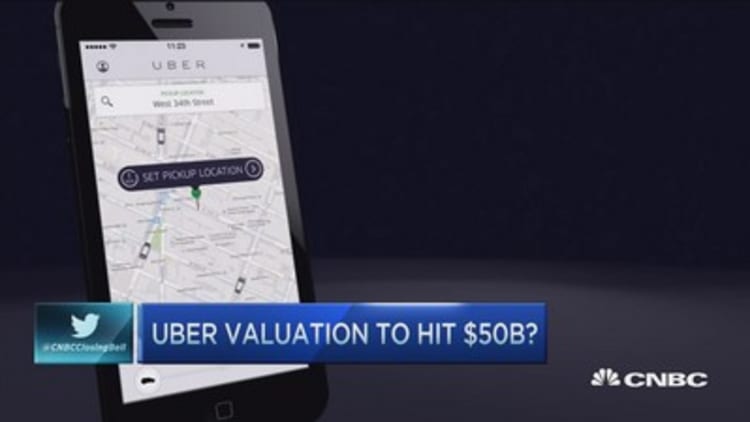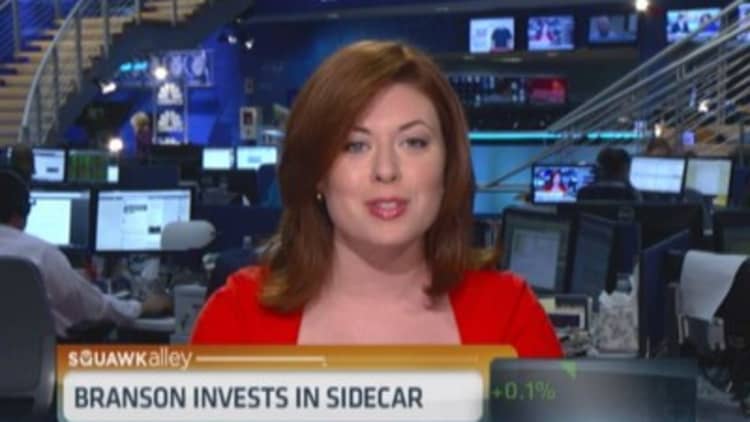
Ride-hailing start-up Uber plans to raise between $1.5 billion and $2 billion in new funding, which the San Francisco-based company expects will bring its valuation to at least $50 billion, The Wall Street Journal has reported.
Read MoreRide-share phenom's valuation may top $50B with new funding: WSJ
But with fellow ride-hailing start-ups including Sidecar and Lyft accumulating so much cash so quickly, it's getting harder for small to midsized upstarts to attract venture capital funding in the shadow of such big names like Uber.
"Big [venture capital] funds want to spend big money. They want to throw $50 or $100 million at a company," said Vivek Wadhwa, a Stanford University fellow and expert in start-ups and entrepreneurship. "They want to invest in the next big thing, not the ecosystem" of start-ups, he said.
Some tech space watchers have also pointed to a possible "accelerator bubble." Accelerator programs offer funding and mentors in exchange for equity stakes. But there are too few high-growth companies, and upstarts have high failure rates, according to a recent note from the Kauffman Foundation that studies entrepreneurship.
The broader concern is Silicon Valley is taking on too much risk, too quickly with lower tangible results. And that could spell trouble when the tech bubble pops.
"These valuations have nowhere to go but down," said Wadhwa. "There's a feeding frenzy among VCs to be a part of the next big thing. For other start-ups, it raises expectations too much—they start racing to raise and spend all the cash they can," he said. (Tweet This)
Other tech watchers contend Uber's valuation is justified.
"It's certainly astonishing how quickly Uber's valuation has increased over the past 12 months," said Boris Wertz, founding partner of Version One Ventures, an early stage fund for start-ups located in Palo Alto, California. But overall, "the underlying potential is bigger than most people ever imagined," he said in an email to CNBC.
Transportation start-ups have upended the traditional taxi and limousine business. Travelers can hail cars with a few taps on smartphones. But the taxi and limousine industry argues the start-ups unfairly are not required to undergo background checks, or carry a higher thresholds of insurance coverage.

The fresh round of funding could cement Uber's status as the richest start-up in history, the publication reported, saying that only Facebook was worth $50 billion before going public.
Of course the big question is when Uber will inevitably go public. According to data tracker CrunchBase, Uber has already completed 10 debt and equity funding rounds since 2009. "There's pressure to take this public and cash this out," Stanford's Wadhwa said.
Other tech watchers argue smaller and medium-sized start-ups might fare better by building value into their products and services, not chasing cash they can't manage. "There is a bubble now—they [hot start-ups] will crash," Wadhwa said. "Don't be like them. Build a company with real value."
Read MoreSidecar, Uber, Lyft: Are ride-sharing start-ups in a bubble?


